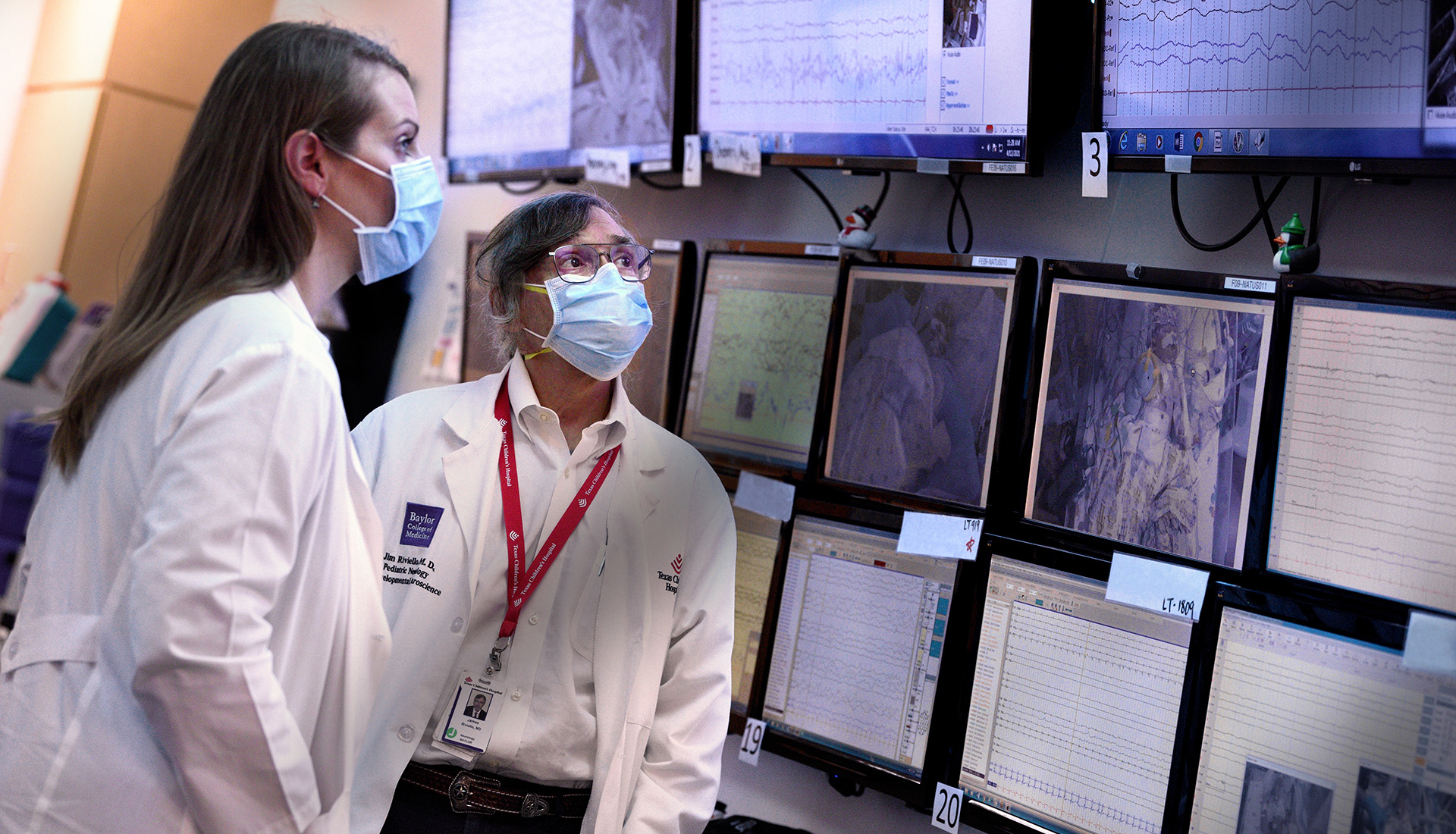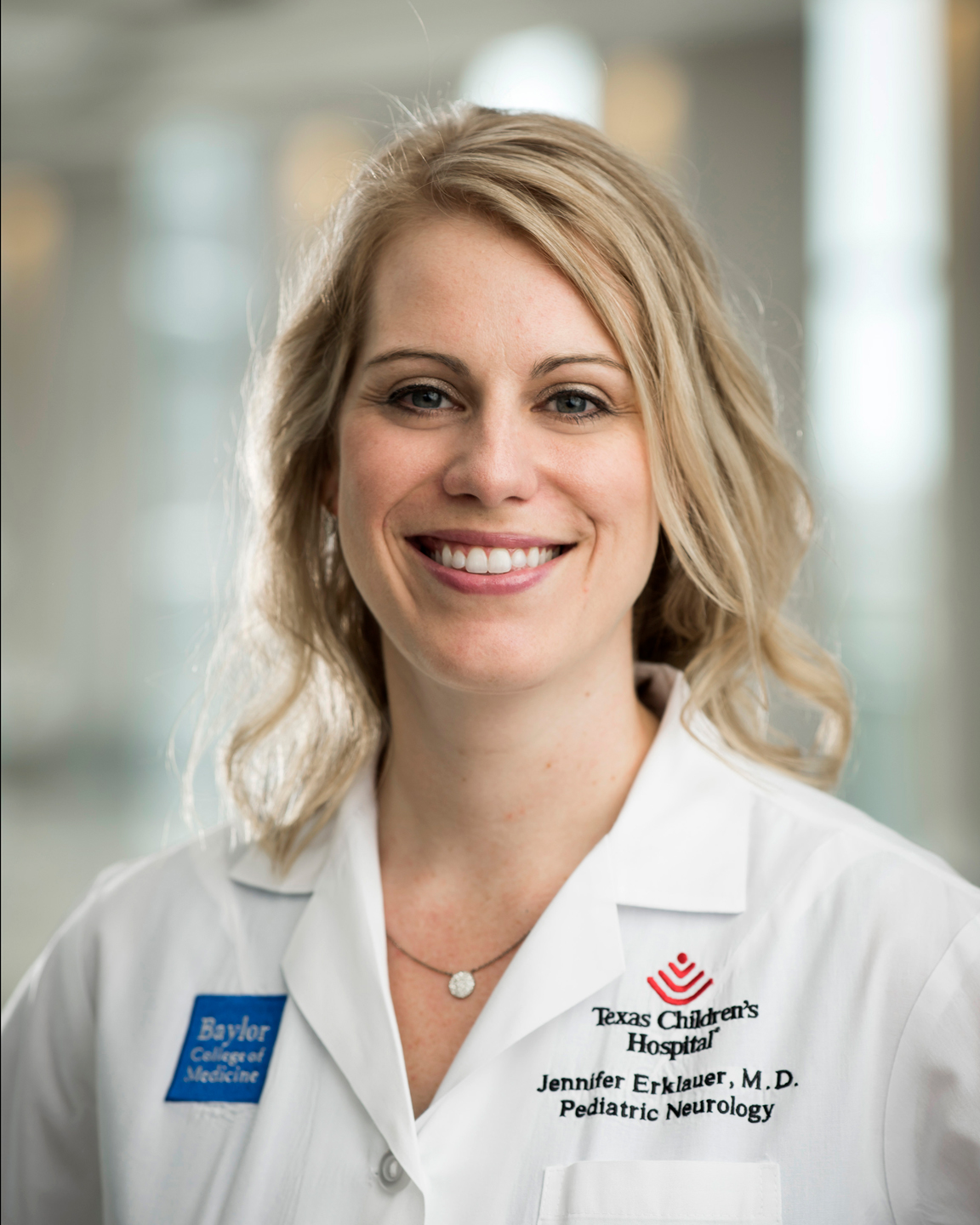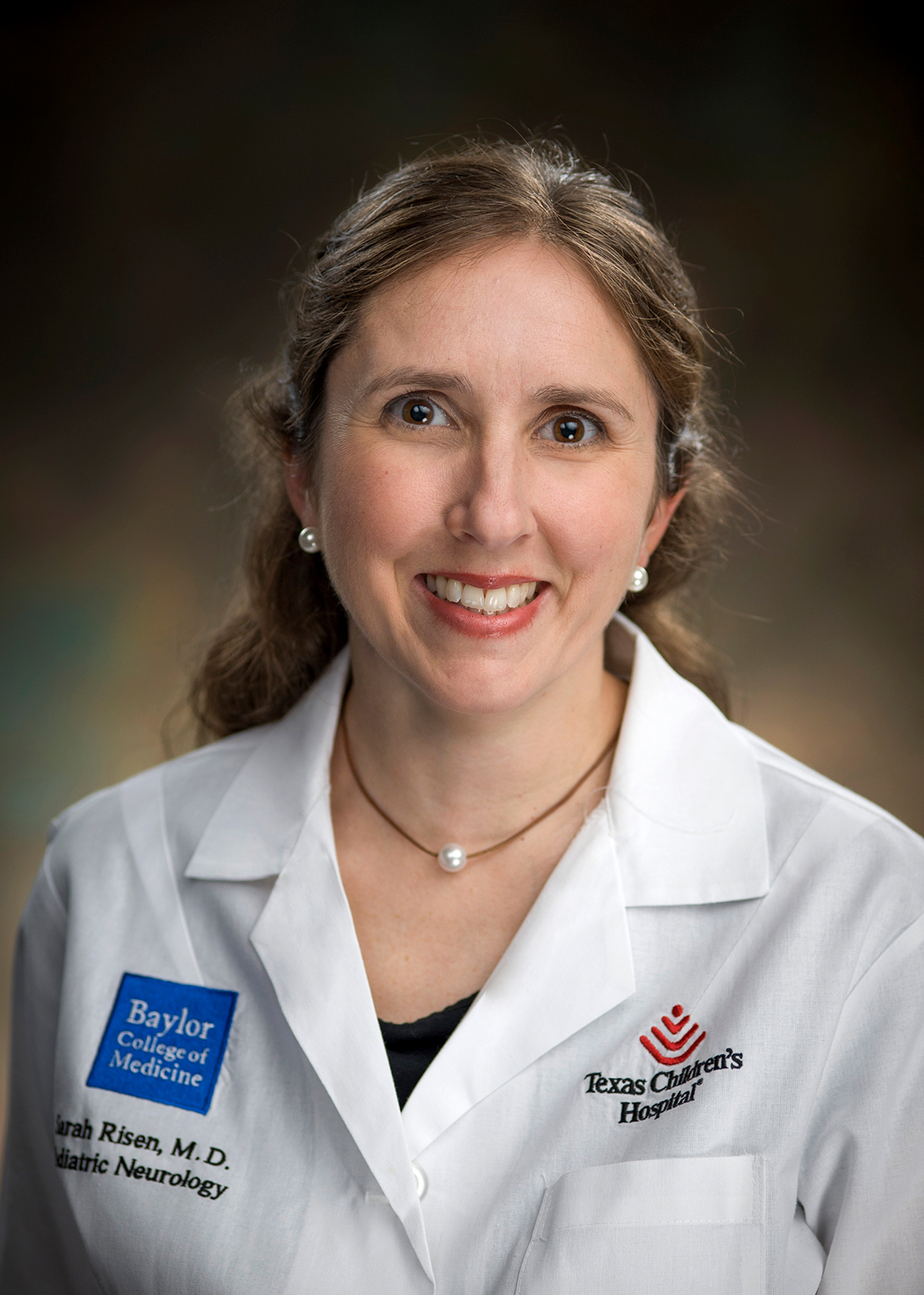


When a driver in the Indianapolis 500 pulls over for a pit stop, an entire team of specially trained mechanics works together to get the car and driver back on the racetrack quickly and safely. Similarly, when a child has a brain injury or disease, a skilled team of experts at Texas Children’s Hospital works together to help the child recover quickly, safely and with the best possible outcome.
To support this effort, Texas Children’s is home to a 14-bed Pediatric Neuro-Intensive Care Unit (ICU), housed in the Lester and Sue Smith Legacy Tower, where physicians, nurses and ancillary specialists are dedicated to and highly experienced in this complex intensive care subspecialty. Although common for adults, comprehensive neurocritical care units for children are rare.
James J. Riviello, MD, received the 2023 Roger and Mary Brumback Lifetime Achievement Award during the annual meeting of the Child Neurology Society (CNS).
The award is presented to CNS members in recognition of a lifelong commitment to pediatric neurology and patient care. Recipients of the award demonstrate dedication and humanism in medicine.
Dr. Riviello, a CNS member for more than 40 years, is an internationally recognized expert in pediatric epilepsy. He contributed to the development of the first dedicated pediatric neurocritical care program in the United States and worked alongside Texas Children’s pediatric neurosurgeons to develop the field of minimally invasive pediatric neurosurgery.
He has received numerous awards recognizing excellence in teaching and is revered by his students — so much so that several of them created a t-shirt with Dr. Riviello’s picture on it and the acronym WWRD, meaning, “What would Riviello do?”
Ranked second in the country among children’s hospitals for 2024-2025 by U.S. News & World Report, Texas Children’s Departments of Neurology and Neurosurgery lead treatment, research and surgical intervention for children with rare and common neurological conditions. Basic scientists and clinical research scientists leverage emerging technologies and invent new ones, while clinicians provide lifesaving treatments for thousands of children every year.
The Neuro ICU team includes experts from multiple disciplines who share their ideas and expertise, learn from each other and use their strengths to improve patient outcomes. Everyone on the team is trained in or has practiced in neurocritical care. The team includes:
“In the Neuro ICU, we care for patients with new onset acute brain dysfunction as well as those with underlying neurological conditions who develop other illnesses,” explained James Riviello, MD, Associate Division Chief for Epilepsy, Neurophysiology and Neurocritical Care at Texas Children’s and Professor of Pediatrics and Neurology at Baylor College of Medicine. “We also treat patients with primary neurological disorders, where the brain is the primary site of the problem.”
Although many of their patients are treated in the Neuro ICU, the team provides consultations throughout all the ICU areas and other inpatient areas across the hospital. For example, if a patient in the cardiac unit suffers a stroke, they remain in the cardiac ICU while receiving neurological care. Neurosurgeons are also essential partners on the patient’s care team, as they would be crucial in removing a blood clot causing the stroke.

“Neurosurgery has a dedicated nurse practitioner to the ICU,” said Jennifer Erklauer, MD, Medical Director of Neurocritical Care and the Neurointensive Care Unit at Texas Children’s and Assistant Professor of Pediatrics at Baylor. “They help facilitate communication between the ICU team and the surgeons. Often, the nurse practitioner joins us during family-centered rounds, giving families the opportunity to engage with the neurosurgery team on the patient’s care plan.”
Often, patients with neurological injury or disease are at high risk for secondary brain injury and must be closely monitored to minimize these risks, prevent further injury and improve recovery. Advanced neuromonitoring capabilities allow providers to more quickly address potential problems. Texas Children’s is the only hospital in the country with real-time, around-the-clock electroencephalogram (EEG) monitoring within a dedicated Pediatric Neuro ICU. EEGs are used to continuously monitor brain activity. Instead of reviewing EEGs periodically, technologists and neurophysiologists can see seizures and other problems as they happen, even when there is no apparent external symptom.
“We can now confirm a stroke in real time, allowing us to immediately remove the brain clot and interrupt the ischemic process,” explained Gary Clark, MD, Division Chief of Neurology and Developmental Neuroscience at Texas Children’s and Professor of Pediatrics-Neurology at Baylor. “This enables us to save brain tissue and improve outcomes for critically ill children. We believe our discoveries will benefit patients worldwide.”
The Neuro Critical Care team participates in national research projects, and members routinely contribute to the development of national guidelines, directly impacting care standards for children with neurologic conditions. Physician education is also a key component of the program.
“Part of our focus is also to train the next generation of neurointensivists to provide the best possible evidence-based, innovative care,” emphasized Katri Typpo, MD, MPH, Professor of Pediatrics and Chief of Pediatric Critical Care Medicine. “By training these future physician leaders, we ensure high-quality care not only at Texas Children’s but at other hospitals where our trainees will ultimately work.”
Children with brain injuries may face ongoing challenges, including seizures, learning difficulties, attention problems, personality and behavior changes, sleep disorders, reduced mobility and communication issues. Members of the Multi-disciplinary Intensive Care NeuroDevelopmental (MIND) Clinic address these complex physical, cognitive and psychosocial needs while supporting the emotional well-being of the child and family.
“The MIND Clinic helps children with neurocritical illnesses reintegrate into their home, school and community while also helping families adjust to changes that may be present or arise over time,” said Gary Clark, MD, Section Chief, Neurology and Developmental Neuroscience.

The clinic includes physical, occupational and speech-language therapy services and is led by Sarah Risen, MD, Associate Professor of Pediatrics, Neurology and Developmental Neuroscience at Baylor; Becky Schultz, PhD, APRN, CPNP, Professor at Texas Woman’s University and Assistant Professor at Texas Children’s; and Karen Evankovich, PhD, Associate Professor of Psychology at Baylor.
Recognizing the immense trauma parents report in the outpatient MIND clinic, Dr. Schultz partnered with nurse scientists at Texas Woman’s University to explore grief in parents of children with critical illness through a randomized, attention-control intervention trial. Drs. Schultz and Risen received grant funding to develop a clinical survey that will capture all potential areas a child and family may struggle with following critical illness.
”It’s very helpful to get this kind of feedback to see what families are really going through and thinking. This important information helps us develop a more comprehensive approach to supporting the child and family,” added Dr. Clark. “We aim to improve outcomes by helping children attain their maximum potential. This includes neurologic outcomes, family outcomes and medical follow-up as well as anticipating and treating any non-neurological but impactful issues for the child and the family.”